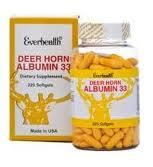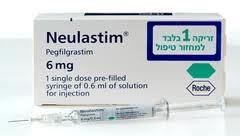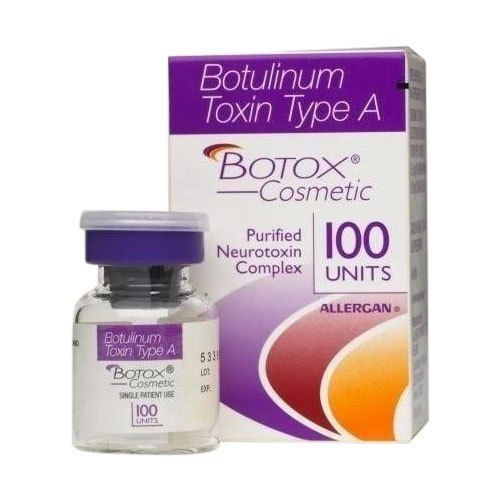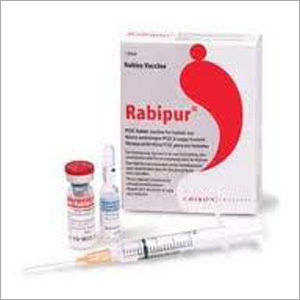Albumin Injection
Albumin Injection Specification
- Origin
- Human Plasma Derived
- Salt Composition
- Albumin (Human) 20% w/v
- Dosage Form
- Injection
- Feature
- Sterile, Pyrogen free, Ready to use
- Ingredients
- Albumin (Human) Solution, Sodium Caprylate, Sodium Chloride, Water for Injection
- Ph Level
- 6.7 7.3
- Physical Color/Texture
- Clear, Yellowish Solution
- Fermentation Smell
- Odorless
- Storage Instructions
- Store below 25C, Do not freeze, Protect from light
- Shelf Life
- 3 Years
- Packing Size
- 20 ml, 50 ml vials
- Container Type
- Glass vial with rubber stopper
- Brand Name
- Varies (subject to supplier)
- Administration Route
- Intravenous infusion only
- Purity
- >/= 96% (as albumin)
- Contraindications
- Allergy to albumin, Severe anemia, Heart failure
About Albumin Injection
Albumin Injection:-
Clinical Pharmacology
Albumin is a highly soluble, globular protein (MW 66,500), accounting for 70 - 80% of the colloid osmotic pressure of plasma. Therefore, it is important in regulating the osmotic pressure of plasma1,2. Human albumin grifols 20% supplies the oncotic equivalent of approximately 4 times its volume of human plasma. It will increase the circulating plasma volume by an amount approximately 2.5 times the volume infused within 15 minutes, if the recipient is adequately hydrated3. This extra fluid reduces hemoconcentration and decreases blood viscosity. The degree and duration of volume expansion depend upon the initial blood volume.
When treating patients with diminished blood volume, the effect of infused albumin may persist for many hours. The hemodilution lasts for a shorter time when albumin is administered to individuals with normal blood volume.
Albumin is also a transport protein and binds naturally occurring, therapeutic, and toxic materials in the circulation2.
Albumin is distributed throughout the extracellular water and more than 60% of the body albumin pool is located in the extravascular fluid compartment. The total body albumin in a 70 kg man is approximately 320 g; it has a circulating life span of 15 - 20 days, with a turnover of approximately 15 g per day1.
Indications and UsageAlbumin (Human), Human albumin grifols 20% is indicated:
- For the prevention and treatment of hypovolemic shock2,4, and
- in conjunction with exchange transfusion in the treatment of neonatal hyperbilirubinemia2.
- Concentrated Albumin (Human) solutions (e.g., 20%) have also been used successfully to induce diuresis in some patients with acute nephrosis1 who were refractory to other forms of treatment. However, Albumin (Human) has no role in the management of chronic nephrosis.
- More dilute Albumin (Human) solutions (e.g., 5%) have been used as pump priming fluids during cardiopulmonary bypass. However, an adequate blood volume can also be maintained during bypass with crystalloid as the only priming fluid without a significant difference in the clinical outcome achieved1,2.
Conditions in which Albumin (Human) use is usually not justified:
- Postoperative hypoproteinemia. Major surgery or other injury of capillary walls may lead to substantial losses of circulating albumin over and above those due to bleeding1,2,4,5. However, this redistribution of albumin in the body rarely causes clinically significant hypovolemia, hence treatment with Albumin (Human) is usually not indicated.
- Renal dialysis. Patients undergoing long-term hemodialysis may occasionally require Albumin (Human) for the treatment of an acute volume or oncotic deficit1. Such patients who receive Albumin (Human) should be carefully monitored for signs of circulatory overload, to which they are particularly sensitive.
- Paracentesis or Acute liver failure. Removal of even large volumes of ascites fluid is usually well tolerated. However, if significant hypovolemia and/or cardiovascular function changes ensue, Albumin (Human) can provide short-term benefit. Similarly, in patients with acute liver failure, Albumin may have a stabilizing effect, but the therapy must be guided by individual circumstances1. Albumin (Human) is of no value in the management of chronic cirrhosis.
Unless the pathologic condition responsible for hypoalbuminemia can be corrected, administration of Albumin (Human) can afford only symptomatic relief. There is NO valid reason for the use of Albumin (Human) as an intravenous nutrient.
High Purity and Quality Formulation
Each vial of Albumin Injection meets strict standards for purity (96%) and safety. Derived from human plasma and thoroughly processed, it is free from pyrogens and ready for safe medical use. The inclusion of sodium caprylate and sodium chloride stabilizes the albumin, while the pH balance ensures compatibility during intravenous administration. The solution is visibly clear to yellowish and odorless, housed in a secure glass vial with a rubber stopper.
Convenient Administration and Storage
Albumin Injection is formulated for intravenous infusion, offering precise and controlled delivery for patients needing rapid plasma volume expansion or albumin supplementation. Ready to use, it requires no additional mixing or dilution. Store below 25C, freeze protection, and light shielding are vital for preserving its efficacy. With dealers and distributors available across India, the product is conveniently accessible for healthcare providers.
FAQs of Albumin Injection:
Q: How is Albumin Injection administered to patients?
A: Albumin Injection is administered only by intravenous infusion. Trained healthcare professionals control the infusion rate and dosage to match the clinical needs of the patient.Q: What are the main benefits of using Albumin Injection?
A: The injection provides rapid plasma volume expansion and corrects hypoalbuminemia in medical conditions where albumin levels are critically low. Its high purity and ready-to-use formulation ensure reliability in emergency and routine clinical settings.Q: When should Albumin Injection not be used?
A: Albumin Injection is contraindicated in individuals with known allergy to albumin, patients with severe anemia, and those suffering from heart failure. Always consult a healthcare provider to evaluate risks and benefits before use.Q: What is the recommended storage condition for Albumin Injection?
A: Store the vials below 25C, protect them from light, and do not freeze. These conditions help maintain the stability, effectiveness, and shelf life of the product for up to 3 years.Q: Where is Albumin Injection typically sourced and distributed?
A: Derived from human plasma, Albumin Injection is supplied by traders, suppliers, and exporters across India. It is available through certified dealers and wholesalers for medical institutions and pharmacies.Q: What does the physical appearance of Albumin Injection indicate?
A: The solution should appear clear and yellowish without any particles or cloudiness. An odorless quality confirms its purity; any deviation should prompt immediate consultation with a pharmacist or healthcare professional.Q: How is the quality and safety of Albumin Injection ensured?
A: Each batch is rigorously tested for sterility, pyrogenicity, and albumin content. Manufactured in compliance with medical standards, the sealed glass vials ensure product safety until the time of use.

Price:
- 50
- 100
- 200
- 250
- 500
- 1000+
More Products in Oncology Drugs Category
Neulastim Injection
Dosage Form : Injection
Storage Instructions : Store refrigerated at 2C to 8C. Do not freeze.
Application : Other, Oncology supportive care
Origin : Biotechnological
Fermentation Smell : Other, Odorless
Salt Composition : Pegfilgrastim 6 mg/ml
Botulinum Toxin A Injection
Dosage Form : Lyophilized Powder for Injection
Storage Instructions : Store in Refrigerator (2C 8C), Protect from Light
Application : Other, Injection in Muscles for Neuromuscular Blockade
Origin : Biotechnologically Derived
Fermentation Smell : Other, Odorless
Salt Composition : Botulinum Toxin Type A
Entecavir Tablets
Dosage Form : Tablet
Storage Instructions : Store below 30C in a dry place, protect from light
Application : Other, Antiviral agent
Origin : Pharmaceutical
Fermentation Smell : Other, Odorless
Salt Composition : Entecavir
Rabipur Injection
Dosage Form : Injection
Storage Instructions : Store at 2C to 8C; do not freeze
Application : Other, Human use Immunization against rabies
Origin : Biological/Vaccine
Fermentation Smell : Other, Odorless
&
We are accepting bulk order quantity.







